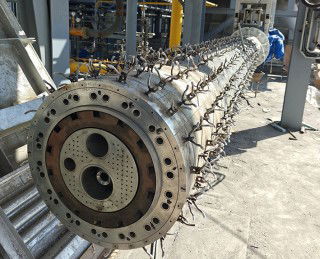Fitch Ratings has affirmed Thailand-based Siam City Cement Public Company Limited's (SCCC) National Long-Term Rating at 'A(tha)', its National Short-Term Rating at 'F1(tha)', and the National Long-Term Rating on its senior unsecured debentures at 'A(tha)'. The Outlook is Stable.
Key rating’s drivers
Strong market position: SCCC's ratings are underpinned by its market position as Thailand's second-largest cement producer by market share, with a stable market share of 27 per cent. Fitch expects the company to maintain its market position and its healthy EBITDA relative to its peers over the next five years due to its strong brands in cement and ready-mixed concrete (RMC).
Healthy financial profile: Fitch expects SCCC's leverage, measured by FFO adjusted net leverage, to increase due to high capex, but remain below 1.5x in 2015-2016 (2014: 0.8x), which remains consistent with its ratings. SCCC's strong credit metrics have supported its ratings and provide sufficient headroom to accommodate the company's growth strategies over the next two years.
Moderate earnings growth: Fitch expects the company's revenue growth in 2015 to continue at 2014's mid-single digit pace (2014: six per cent). However, EBITDA margin is likely to decrease to 22-23 per cent (2014: 24 percent) due to pricing pressure from additional supply. Fitch expects SCCC's revenue growth and margins to improve in 2016, in line with the overall economic improvement and increases in the government's infrastructure spending.
Vulnerable to energy prices: SCCC's EBITDA margin is highly sensitive to energy costs, mainly coal and electricity. Fuel and electricity costs generally accounted for more than 70 per cent of total production costs. However, coal prices decreased in 2014 and are likely to continue falling in 2015, according to the World Bank.
Single-market concentration: SCCC's ratings are constrained by a lack of geographical diversification. Most of its earnings come from cement and related products sold in Thailand. Excess capacity, including capacity it will add in 2015, is likely to be gradually absorbed by growth in cement demand in the medium term. However, additional capacity could be created by debottlenecking of existing kilns, along with the construction of new kilns by major local producers.
